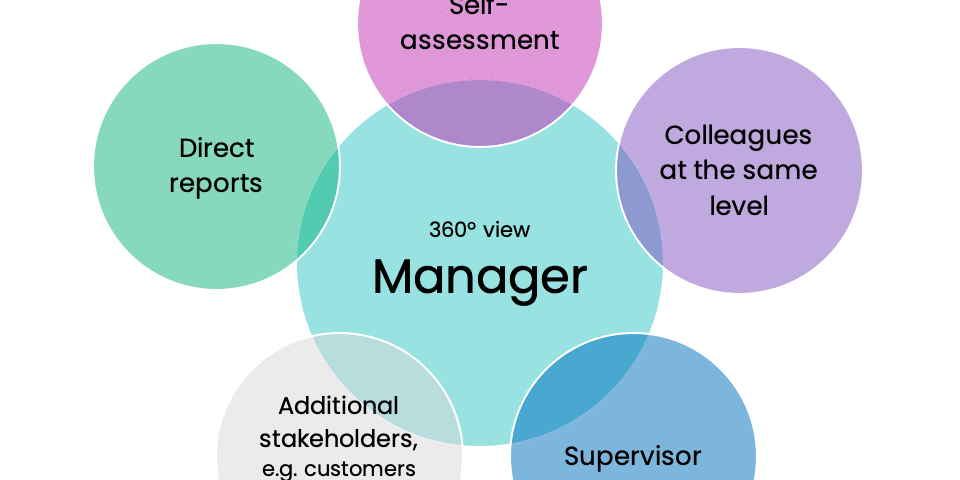- Top Quality Custom Essays
- +1 (628) 201-7932
- eprowriters01@gmail.com
360 Feedback as an assessment instrument
360 Feedback as an assessment instrument

Last updated on October 3rd, 2023 at 03:29 pm
In this 360 Feedback as an assessment instrument task, consider this dilemmas of using 360 feedback internationally case study;
A major US investment bank was using 360 Feedback on managers from any cultures. They invited Mr. Trompenaars and Hampden-Turner (the authors of our book) to give their opinion on whether the scores achieved should be used to select future leaders. One obvious problem was that American managers tended to rate each other and the foreign managers they knew much more highly than did groups from other cultures.
The problem was not prejudice by Americans in favor of Americans but the tendency of Americans to be more lavish in their praise generally. This had the effect of pushing the ratings of the majority of Americans much higher that the ratings of all other cultures. The Americans reciprocated enthusiasm. The biggest gap, 18 points, was between the Americans and the French, followed closely by the Germans, the British, the Scandinavians and the Dutch fell somewhere between the two extremes.
We were asked why this had occurred and whether anything could be done to make the system fairer. To explain what had happened we turned to our four quadrants culture. (Chapter 11 – National Cultures and Corporate Cultures). Most US managers were in the Guided Missile quadrant, consisting of temporary teams of relative strangers. It is advantageous, in such circumstances, to be positive in the hope that your high opinion of fellow team members turns out to be self-fulfilling. If you treat them as talented, then they are more likely to become so. You are not with them long enough to know with any certainty how good they really are and so you opt for motivating them by your own encouragement and enthusiasm. Teams need to break the ice quickly and all purpose cheerfulness is a good way of getting people to pull together and settle down to work. It is facilitative.
In contrast, the French managers tended to rate their work colleagues quite low, over twenty points below comparable rating by Americans. This was because most French managers were in the Family culture quadrant. This consists of people coming from an elite background, in close and intimate long-term relationships. These conditions favor negative feedback, the kind from which people are most likely to learn. If you are very close to work companions, and you know and they know that you are all very good academically so that their quality is not in question, then appraisals can be far stricter. You do not need to cheer up such people, they actually want to be even better.
A term of high praise among French professionals is “pas mal,” said softly, or “not bad.” You do not lavish praise on each other because you expect the other to be good: enthusiasm implies surprise and a certain naivite.
You are not afraid to be negative because family relations are strong enough to withstand it, while temporary team relationships are not always so strong.
Scoring both each other and foreigners relatively low were the German managers, although their scores were not as low as those of the French respondents. We believe that his is because many German managers
believe themselves to be in a Eiffel Tower culture where the stress is on being dispassionate and objective. You are not lavish in your praise because hard measures of capacities are available. Your track record speaks for itself and making a fuss about it is superfluous. Experts are used to being experts and do not need to be praised for what they are; praise is for children not accustomed to high status. Nor should you be seen as showing off of encouraging others to do so. Anything approaching hype spells insecurity and deception. Do not just look good; you need to actually be good.
Having tried to explain how different cultures apprise and feedback internally, we turned to the issue of making 360 Feedback fairer internationally. We suggested that scores could have comparative value if each respondent was scored above or below the mean score given by fellow Americans, fellow French, and fellow German respondents. Hence if Americans gave an average of 66 points to those they evaluated and the French 48 points, then an American scoring 69 would rate 3, while a Frenchman scoring 54 points would rate 6. The tendency of culture towards being negative and positive would be controlled. The authors also warned against using this method in most of Southeast Asia, where appraisals given on paper, without discussion, were often seen as disrespectful.
Question:
Do you believe that the 360 Feedback as an assessment instrument would be gladly incorporated in cultures different than the U.S.? Why or Why not?
Need help with this or similar assignment?
- Tell Us Your Requirements: Please provide us with the specifics of your paper so that we may do our best to personalize it. Select the discipline, word count, format, academic level, and other details on the order form.
- Connect with the Best Writer: Consult and collaborate with an expert and complete your paper on schedule.
- Monitor the progress: Control the work process by checking the completed parts of your document right away. You can easily submit your comments by chatting with your essay writer on our website.
- Download Your Paper: Get your paper written according to your specifications. It is important to note that you only pay for an essay when you are completely satisfied with the outcome. Please provide us your feedback about our collaboration.
About Us
Eprowriters.com, and its afilliate blog Eprowriters.net, is a custom essay writing service that has been providing academic support with great success for more than five years. We are constantly updating our objectives in order to improve the quality of service we deliver and increase client satisfaction. We’ve progressed to an original concept as a result of our success.


